|
Advice article filter
|
Does your horse get enough vitamins and minerals?Roughage is the staple in a healthy diet for a horse, which you supplement with concentrates when needed. However, the amount of vitamins, minerals and trace elements that a horse takes in, is often not sufficient. How do you know whether your horse has deficiencies? Unfortunately, you cannot always tell from the outside whether your horse is getting enough vitamins and minerals, which makes the assessment very difficult. Even with a blood test it is difficult to demonstrate a deficiency as the test is only a snapshot in time and deficiencies do not always show up in the blood. From some horses it is known that they will start eating sand or manure when they need a supplement, but that does not apply to all horses. This is why we have defined three situations from which you can derive whether or not your horse or pony needs a supplement. 1. Vitamin for a horse or pony that is only fed roughage and/or grassFrom the outside, you cannot see how much vitamins and minerals your hay or silage contains. Even though it smells nice or has the right colour, this does not tell you anything about the quality. Years of research into roughage and its contents show that the levels of vitamins, minerals and trace elements have continually decreased over the past years. In other words, roughage alone does not contain sufficient nutrients to meet the daily-required quantity for your horse. Supplementing with a daily balancer, such as Pavo Vital, provides the solution. 2. Sufficient vitamins for a horse that gets little concentratesNormally, if you give your horse approximately 1.5 - 2 kg concentrate feed per day, you will meet the vitamin and mineral requirements of your horse. A pony (300 kg) will require 0.75 kg concentrates per day. Pavo Condition and mueslis, such as Pavo Nature’sBest and Pavo 18Plus, are considered concentrated feed. Do you give less than 1.5 kg concentrates and/or less than 0.75 kg per day to your horse or your pony respectively? Then we recommend a supplement of vitamins, minerals and trace elements. 3. Vitamin deficiency? That can result in vague health complaintsIf a horse is suffering from a vitamin and mineral deficiency, your horse’s body will go in ‘savings mode’ and ‘save’ on parts that are not essential for survival, such as the quality of the hooves and the coat. If your horse or pony suffers from brittle hooves, has a dull coat, does not shed its coat easily or has stiff muscles, this could be an indication of a deficiency. If your horse suffers from brittle hooves, feeding it biotin, which supports enhancement of the coat and hooves, might help. When your horse is recovering from sickness or going through a period of decreased immunity, it could also be wise to give your horse something extra. By feeding a so-called ‘balancer’ on a daily basis, you ensure that your horse’s body can function well. By doing so, you know for sure that its vitamin level is always at the right level. 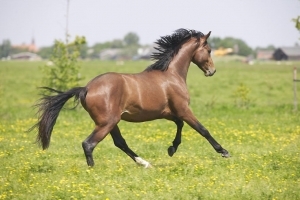
Pavo 18PlusKeeping your senior horse fit and healthy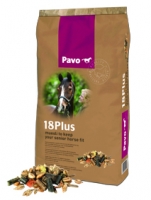 Pavo ConditionDaily high fibre pellet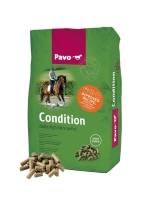 Pavo DailyFitDaily vitamin biscuit enriched with flowers and herbs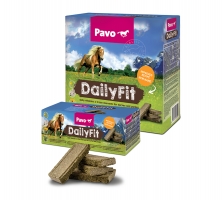 Pavo Nature's BestThe daily healthy muesli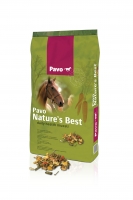 Pavo VitalDaily vitamin and mineral balancer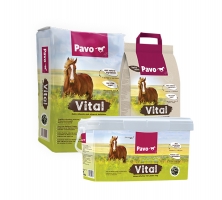 |

